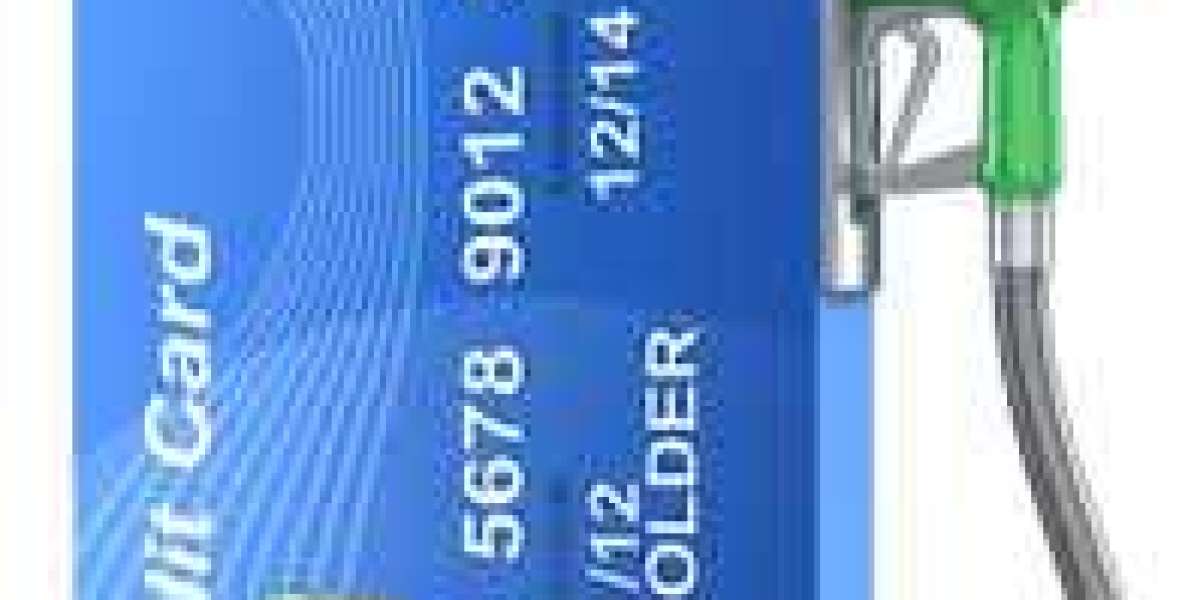Fuel Card Market
Introduction:
Fuel Card Market Size is expected to grow USD 17,114.8 Million by 2032, at (CAGR) of 8.2% during the forecast period (2023 - 2032).
Fuel cards have emerged as indispensable tools for businesses managing fleets of vehicles, offering streamlined payment solutions, enhanced control over fuel expenses, and valuable insights into fleet operations. With the increasing demand for cost-effective and efficient fleet management solutions, the fuel card market has experienced significant growth and innovation. This article explores the dynamics of the fuel card market, highlighting key trends, drivers, challenges, and opportunities for businesses seeking to optimize their fleet operations.
Fuel Card Market Analysis:
The global fuel card market has witnessed substantial growth in recent years, driven by the proliferation of commercial fleets, rising fuel prices, and the need for efficient expense management solutions. According to industry reports, the fuel card market is projected to reach USD XX billion by 2027, with a compound annual growth rate (CAGR) of XX% during the forecast period. Key factors driving market growth include:
- Cost Savings and Operational Efficiency: Fuel cards enable businesses to track fuel expenses, monitor fuel consumption, and identify opportunities for cost savings. By leveraging negotiated discounts, rebates, and incentives offered by fuel card providers, businesses can reduce fuel costs, improve operational efficiency, and optimize fleet performance.
- Enhanced Control and Security: Fuel cards offer businesses greater control over fuel purchases and expenditures, allowing them to set spending limits, restrict purchases to authorized locations, and monitor transaction activity in real-time. Advanced security features such as PIN codes, driver identification, and real-time alerts help prevent unauthorized use and mitigate fraud risks.
- Integration with Fleet Management Systems: Many fuel card providers offer integration with fleet management software platforms, enabling seamless data exchange, automated reporting, and actionable insights into fleet operations. Integrating fuel card data with vehicle tracking, maintenance, and route optimization systems enhances visibility, decision-making, and operational efficiency.
- Regulatory Compliance and Reporting: Fuel cards facilitate compliance with regulatory requirements and reporting obligations related to fuel taxation, emissions monitoring, and mileage tracking. Automated reporting features simplify compliance tasks, reduce administrative burden, and ensure accuracy in regulatory filings, helping businesses avoid penalties and fines.
Fuel Card Market Key Trends and Innovations:
Several key trends are shaping the future of the fuel card market:
- Digitalization and Mobile Apps: Fuel card providers are investing in digitalization initiatives and mobile app development to enhance user experience, accessibility, and convenience. Mobile apps enable cardholders to locate nearby fuel stations, track transactions, and manage account settings from their smartphones, improving operational efficiency and user engagement.
- Contactless Payments and NFC Technology: The adoption of contactless payment technology and Near Field Communication (NFC) capabilities in fuel cards is gaining momentum, allowing cardholders to make secure, convenient, and touch-free transactions at fuel pumps. Contactless payments reduce transaction times, minimize physical contact, and enhance safety and hygiene, particularly in light of the COVID-19 pandemic.
- Sustainability and Green Initiatives: Fuel card providers are increasingly focusing on sustainability and environmental responsibility, offering eco-friendly fuel options, carbon offset programs, and reporting tools to help businesses track and reduce their carbon footprint. Supporting sustainable fuel choices aligns with corporate social responsibility goals and addresses growing concerns about climate change and air quality.
- Value-added Services and Rewards Programs: To differentiate their offerings and attract customers, fuel card providers are introducing value-added services, rewards programs, and loyalty incentives. These may include discounts on vehicle maintenance services, roadside assistance programs, travel perks, and cashback rewards, enhancing the value proposition for cardholders and fostering customer loyalty.
Get a free sample @ https://www.marketresearchfuture.com/sample_request/6688
Key Companies in the Fuel Card market include:
- FLEETCOR
- WEX Inc.
- WAG Payment Solutions PLC
- PLC
- Exxon Mobil
- Royal Dutch Shell
- Radius
- Bancorp
Challenges and Considerations:
Despite the opportunities presented by fuel cards market , businesses should be mindful of potential challenges and considerations:
- Data Security and Privacy: The collection, storage, and transmission of sensitive data associated with fuel card transactions pose risks related to data security and privacy. Fuel card providers must implement robust security measures, encryption protocols, and data protection policies to safeguard cardholder information and mitigate cybersecurity threats.
- Vendor Selection and Contract Terms: Choosing the right fuel card provider and negotiating favorable contract terms are critical for maximizing the benefits of fuel cards. Businesses should carefully evaluate provider offerings, pricing structures, network coverage, and customer support services to ensure alignment with their specific needs and preferences.
- Compliance with Regulatory Changes: The regulatory landscape governing fuel taxation, emissions standards, and reporting requirements is subject to change, necessitating ongoing monitoring and compliance efforts. Businesses must stay informed about relevant regulations, update their systems and processes accordingly, and adapt to regulatory changes in a timely manner to avoid non-compliance penalties and liabilities.
- Market Competition and Innovation: The fuel card market is highly competitive, with numerous providers vying for market share and differentiation. Businesses should stay abreast of industry trends, innovations, and emerging technologies to remain competitive, enhance their offerings, and meet evolving customer expectations.
Read more article –
Europe Set-Top Box Market By Content Quality Forecast (2016-2023)
Asia Pacific Set-Top Box Market By Product Type Forecast (2016-2023)
Asia Pacific Set-Top Box Market Forecast (2016-2023)
Global Set-Top Box Market By Services Forecast (2016-2023)
Asia Pacific Silicon Wafer Market By Wafer Size Forecast (2017-2025)
Europe Silicon Wafer Market Forecast (2017-2025)








